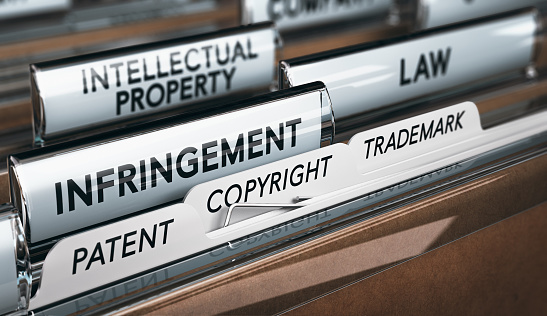Recent Articles
The 'License as Tax' Fallacy
Article, Spring 2022
Unreasonable: A Strict Liability Solution to the FTC's Data Security Problem
Article, Spring 2022
The Ping-Pong Olympics of Antisuit Injunction in FRAND Litigation
Article, Spring 2022
Content Moderation Remedies
Article, Fall 2021
An Empirical Study: Willful Infringement & Enhanced Damages in Patent Law After Halo
Article, Fall 2021
Recent Notes
The Best Data Plan Is to Have a Game Plan: Obstacles and Solutions to Reaching International Data Privacy Agreements
Note, Spring 2022
Mental Health Mobile Apps and the Need to Update Federal Regulations to Protect Users
Note, Spring 2022
Blog Posts
A New Dimension to the Gun Control Debate
During the recent election, the issue of gun control predictably served as a point of contention between the two candidates. Hillary Clinton advocated for “commonsense” regulations on gun ownership such as closing the gun show loophole. As expected, Donald Trump boasted of his NRA endorsement and asserted that he will protect gun ownership rights under the Second Amendment.
Streaming Video Without an Open Internet
On February 26, 2015, The Federal Communications Commission voted 3-2 to enact a series of “Open Internet” protections. The three central rules prohibited Internet Service Providers (ISPs) from blocking access to legal content, slowing internet speeds to certain websites, and favoring certain types of internet traffic over others. The 3-2 Commissioner vote was split along party lines; 3 Democrats voting to approve and 2 Republicans voting to reject.
Patent Agent Privilege
Should attorney-client privilege extend to communications between clients and patent agents? In March earlier this year, a split decision by the Federal Circuit answered this question in the affirmative. This is a unique extension of the attorney-client privilege due to the nature of the patent agent profession.
Getty Images v. the Public Domain: Who Really Wins?
The public domain offers teachers, graphic designers, and anyone trying to design a website on a budget the opportunity to use millions upon millions of images without fear of infringing on the original author’s copyright. The images can be reused in their entirety or be remodeled into something new.
Make the Internet Great Again
Donald Trump will become President Trump in less than one week. For some, that’s a terrifying reality. For others, that’s a cause for celebration. For all, however, that means radical change is on the horizon.
Now, what will change? Who knows—like all politicians, Trump (likely) made more promises than he can keep. His 100-day agenda, for example, is devoid of several policies that he championed during his campaign such as the wall and the Muslim ban. But, based on Trump’s FCC landing team (and 2014 tweet), at least one thing seems certain: Net neutrality will be on the chopping block.
Federal Labor Law Protections in the Age of Social Media
Websites like Facebook and Twitter have given millions of people a chance to publicly express thoughts and opinions they otherwise would have kept private. Social media also leaves a record of the views its users express. Some of these views are benign, but others are controversial.
Unsurprisingly, many people use their social media profiles to discuss work. Many people are unhappy in their work life, and it should come as no surprise that these are often the topics of social media activities. This has required courts and federal agencies like the National Labor Relations Board (NLRB) to determine how well-established standards in labor and employment law apply to the era of social media.


